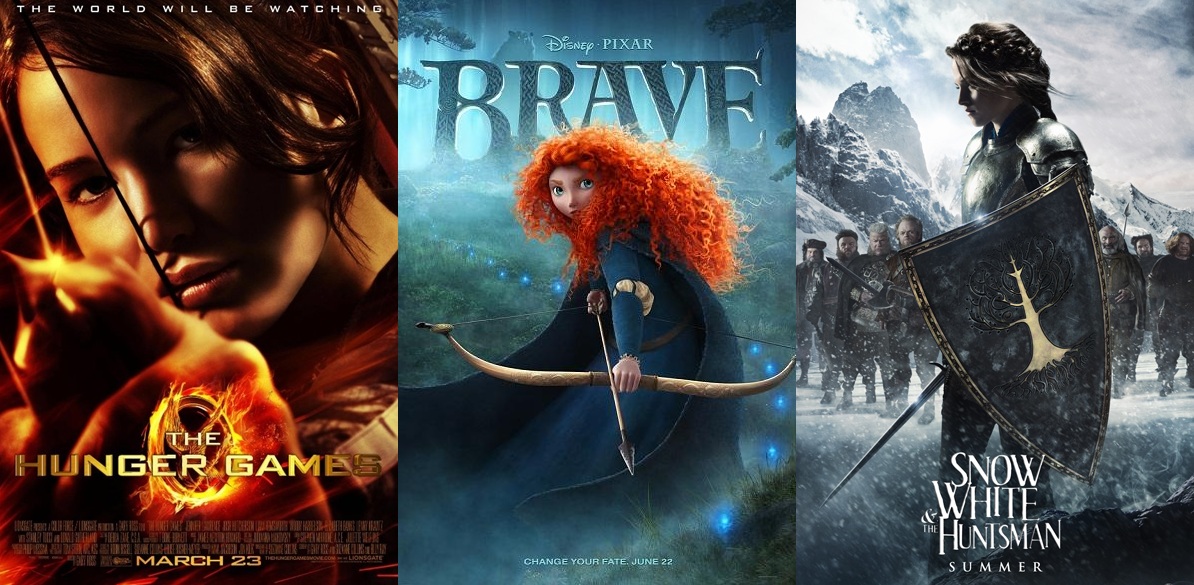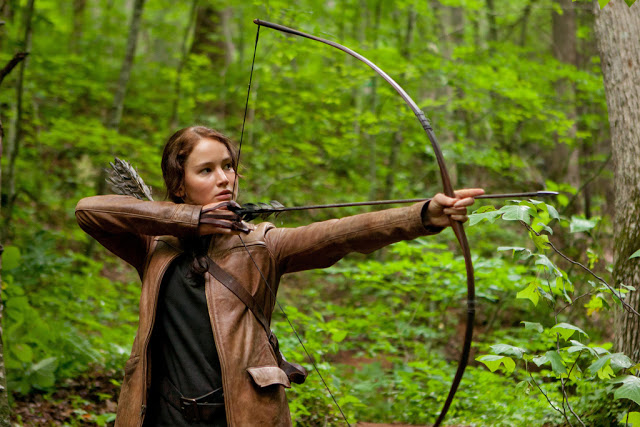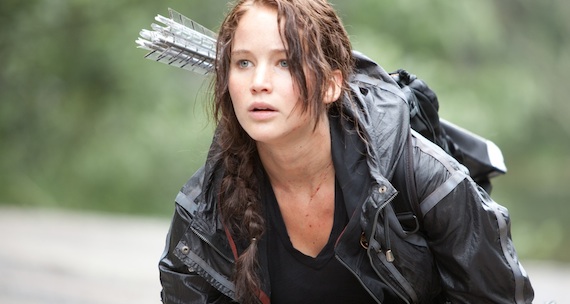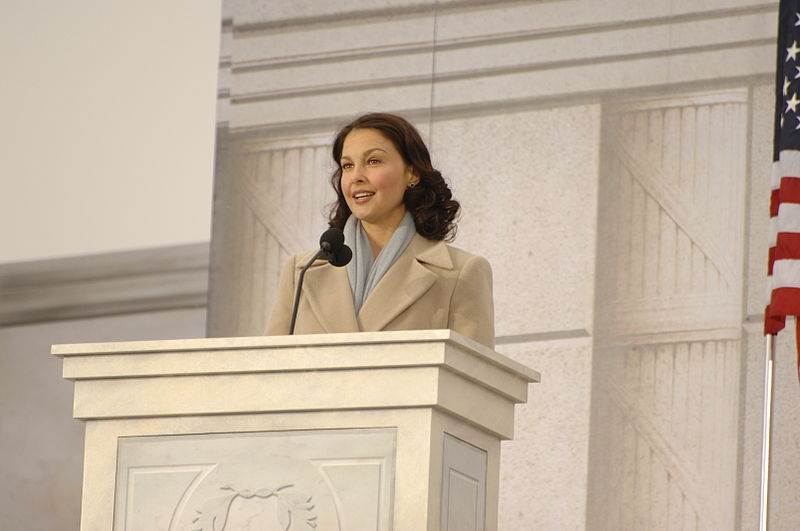Guest post written by Laura A. Shamas. Originally published at Women and Hollywood, cross-posted with permission.
Tag: The Hunger Games
Bitch Flicks’ Weekly Picks
Amber‘s Picks:
Hillary’s Hair: More Newsworthy Than the Summit of the Americas? by Jenn Pozner for WIMN’s Voices
People on the Internet Can Be Hella Racist by Issa for xo Jane
We Heart: Funny or Die Counsels Rick Santorum on “Aborting” His Campaign by Lauren Barbato for Ms.
Why Everyone Is Losing Their Shit Over the Magic Mike Trailer by Kelsey Wallace for Bitch Magazine
Kristin Marcon & ‘The Most Fun You Can Have Dying’ by Wellywood Woman
Stephanie‘s Picks:
Pakistani Documentary Makers Nominated in Cannes Film Festival by Areeb Hasni for The News Tribe
Daenerys Targaryen and the Most Powerful Women in Television History by Judy Berman for The Atlantic
Joss Whedon Performs at Women’s Rights Event, Decries Sexism, Praises ‘Hunger Games’ by Jordan Zakarin for The Hollywood Reporter
Condescending Dude Review of Hunger Games by Fannie for Fannie’s Room
HBO’s ‘Girls’ Is All About Spoiled White Girls by Renee Martin for Womanist Musings
Girls That Television Will Never Know by Latoya Peterson for Racialicious
Megan‘s Picks:
When ‘Art’ Goes Wrong: Black Women’s Pain Is Not a Prop by Jamilah Lemieux for Ebony
Why We Need to Keep Talking About the White Girls on Girls by Dodai Stewart for Jezebel
Film Women Shining at Tribeca Fest by Associated Press for My San Antonio
Girls Just Want to Change the Needle On a Tired Media Record: Stop Telling Us We’re Fat by Roth Cornet for Hit Fix
The Other Girls and Diversity Goals for Pop Culture by Alyssa Rosenberg for Think Progress
Yes, I’m Buying the Katniss Everdeen Barbie For My Daughter by Hayley Krischer for Ms. Magazine
‘The Hunger Games’ Review in Conversation: Part 1 on Jennifer Lawrence, Female Protagonists, Body Image, Disability, Whitewashing, Hunger & Food
 |
| Jennifer Lawrence as Katniss Everdeen in The Hunger Games |
Part 1 of the Review in Conversation on The Hunger Games.
Megan’s Take:
In a dystopian future, the nation of Panem stands where North America once existed. The government at the Capitol, which controls the country, mandates a girl and boy between the ages of 12 and 18 are selected by lottery in each of the 12 Districts as tributes to compete in a fight to the death called the Hunger Games aired on live television. 16-year-old Katniss Everdeen volunteers when her little sister Prim’s name is called. But in the Hunger Games, only one person can survive.
 |
| Jennifer Lawrence as Katniss |
I thought the movie was fantastic. I often lament the lack of strong female protagonists in film. We desperately need more characters like Katniss on-screen. A skilled archer, Katniss is smart, stubborn, brave, abrasive and self-reliant. She not only fights for her own survival; she’s compelled to protect her family. Living in the most impoverished neighborhood in the poorest of the 12 Districts, Katniss is the resourceful breadwinner, illegally hunting for food to feed her family. She’s a surrogate mother to her sister Prim and even her own traumatized mother, grief-stricken over the death of her daughters’ father. Despite her tough exterior, she possesses a vulnerability. What makes Katniss unique is that she “feels empathy when nobody else does.” She’s compelled to defend others, even her competition.
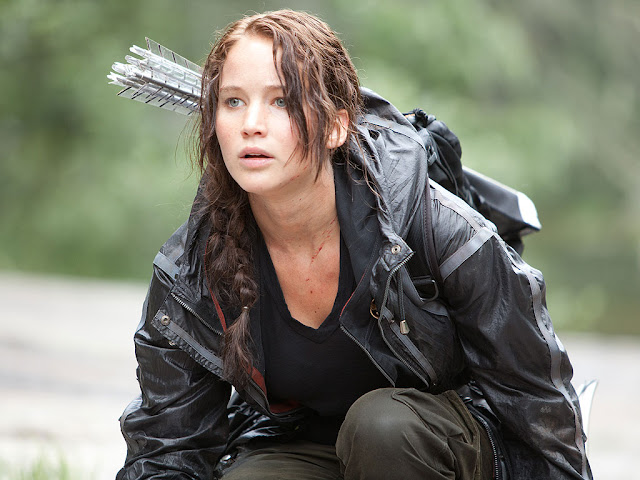 |
| Jennifer Lawrence as Katniss |
 |
| Jennifer Lawrence as Katniss |
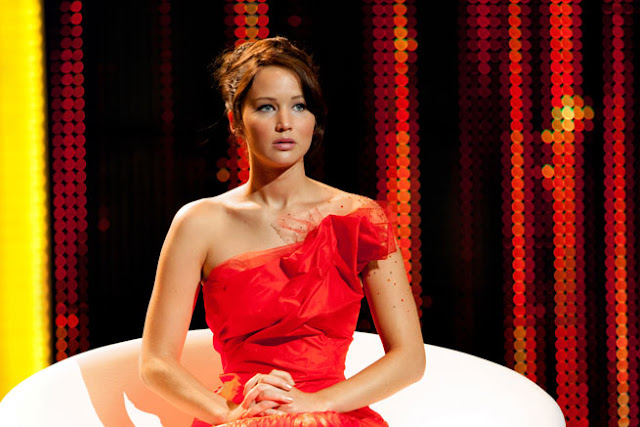 |
| Jennifer Lawrence as Katniss |
Much has been said about Lawrence’s body, but I’m not really interested in analyzing it—the incessant discussion of female bodies is part of the problem. What I do want to discuss is the film’s handling of food and hunger (a conversation I think many people are sincerely trying to have who end up derailing into critiques of Lawrence’s body). Everyone in District 12 is hungry, including Katniss. Winning the Hunger Games isn’t just about surviving; it’s also about bringing extra food home to your district—especially important for the poorer areas. The Capitol uses hunger as a political tool—a fact that doesn’t come through clearly enough in the movie. (An anecdote: The person who saw the movie with me didn’t understand why it was called The Hunger Games.)
In the book, Katniss eats and enjoys the plentiful food provided to her in the lead up to the game. She finds a particular lamb stew rich and delicious and she enjoys eating it until she’s full. For a girl who’s been hungry much of her life, the food available on that train trip would be irresistible. Yet in the movie, Katniss seems uninterested, even immune to the lavish spread. Is there a reason Katniss can’t enjoy a hearty stew to fortify herself for the impending game? This de-emphasis of food changes the character of the story dramatically. Remember the moment when Gale presents a roll to Katniss in the woods and she exclaims “Is this real?!” and they break the roll to enjoy together? The berries Katniss and Peeta threaten to eat in their Romeo-and-Juliet-style sabotage of the game? The story of nourishment and consumption takes a major hit when the movie doesn’t permit Katniss to eat and enjoy food and, for me, this might trump whatever positive body-image message might be implied by the decision to cast Lawrence without regard to the “underfed” description in the casting call, and without regard to her adult status.
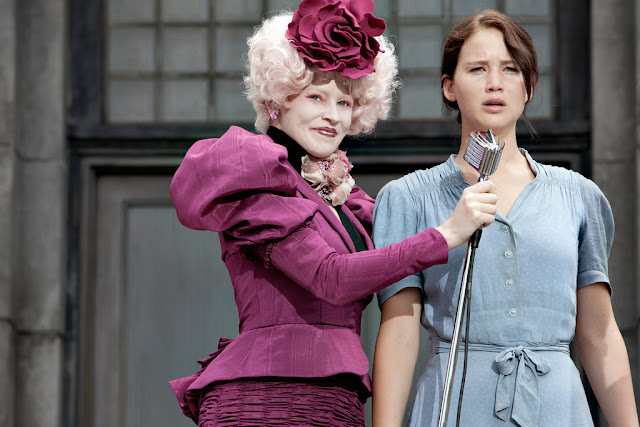 |
| Elizabeth Banks as Effie Trinket and Jennifer Lawrence as Katniss Everdeen |
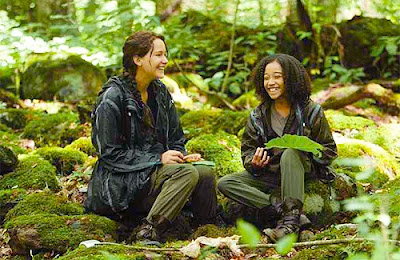 |
| Jennifer Lawrence and Amandla Stenberg as Rue |
I too didn’t understand the de-emphasis of food and hunger. In reality, 1 in 6 children suffer from hunger. And I too loved Collins’ descriptions of food, like Katniss relishing her favorite nourishing lamb (dislike) stew with dried plums (yum!) and the sweetness of hot chocolate touching her lips for the first time. And of course there was the continual symbol of bread — the warm and fragrant bread accompanied by Prim’s cheese Katniss eats with Gale, or Peeta’s burned bread that saves her life years earlier, or District 11 sending Katniss a loaf of bread for her alliance with Rue (who was from District 11) as a symbol of solidarity and quiet revolution, which the film eliminates, showing the citizens (many of whom are people of color) rioting instead.
In a way, it’s funny that we haven’t really talked about violence, and how — in order to get a PG-13 rating — the film sanitized violence. The books are intended for a Young Adult audience, but are filled with brutal murders. The movie is, too, and I think we could see the de-emphasis of violence as either positive or negative: Positive in that the movie doesn’t glorify violence, or depict it graphically (which movies do too much of in general), but bad in that the movie isn’t as dark or complex as it could have been. While I realize that a filmmaker must make difficult choices when adapting a book (series), every choice made about The Hunger Gamesmade it safer — and more likely to not put off, offend, or disturb mainstream viewers. In essence, making it a successful blockbuster.
Amber Leab is a Co-Founder and Contributing Editor to Bitch Flicks.
Bitch Flicks’ Weekly Picks
Stephanie‘s Picks:
“Ashley Judd, Kate Winslet and Jennifer Lawrence vs. Our Toxic Misogynist Culture” by Sophia Savage for Thompson on Hollywood
“The Hunger Games, Hollywood and Fighting Fuck Toys” by Caroline Heldman for Ms. Magazine
“Talking to Lena Dunham About Being A ‘Girl'” by Kase Wickman for The Awl
“Film Corner” (On The Lucky One) by Melissa McEwan for Shakesville
“The Hunger Games’ Feral Feminism” by Katha Pollitt for The Nation
“The Five Most Pathetic Female Film Characters of All Time” by Lindy West for The Guardian
Amber‘s Picks:
Betty Draper Francis Needs Your … Ice Cream? A Few Notes on the Evil TV Ex-Wife by Sady Doyle for Tiger Beatdown
What to Make of Barbie’s Presidential Run by E. Cain for Gender Focus
“Pull up your skirt to prove you’re a real woman” by Elin Weiss and Hennie Weiss for The F Word
The Hunger Games Movie vs. The Book from Feminist Frequency
Future of Feminism: The Complete Works from Fourth Wave
We need to talk about women filmmakers: or, two cheers for the BFI’s Made in Britain season by Sophie Mayer for The F Word
Megan‘s Picks:
Why You Should Get Excited About Next Big-Screen Heroine — Sabrina The Teenage Witch by Alyssa Rosenberg for Think Progress
Interview with Vamps Director Amy Heckerling by Melissa Silverstein for Women and Hollywood
Tavi Gevinson: “Feminism is not a rulebook but a discussion” by Lori Adelman for Feministing
Lena Dunham Interview, Part One: What Girls Is Made Of by Jamie Poniewozik for Time
Lena Dunham Interview, Part Two: The Personal Factor by Jamie Poniewozik for Time
Are Evil Stepmothers the New Anti-Hero? by Erik Kain for Forbes
“I’m Not Very Good at Making People Like Me”: Why ‘The Hunger Games’ Katniss Everdeen Is One of the Most Important Heroes in Modern Culture
 |
| Jennifer Lawrence as Katniss Everdeen in The Hunger Games |
Guest post written by Molly McCaffrey. Originally published at I Will Not Diet. Cross-posted with permission.
***SPOILER ALERT: Though there are no real spoilers here, one scene and the basic premise of the film are discussed in detail. If you’ve seen the preview for The Hunger Games, reading this review won’t reveal anything new, but if you haven’t seen the preview, I’d suggest you skip the part I’ve marked below.***
Possibly the most important moment in the film adaptation of The Hunger Games occurs when protagonist Katniss Everdeen (played with a perfect cross of vulnerability and strength by Kentucky native Jennifer Lawrence) confesses to her stylist Cinna (the circumspect Lenny Kravitz who aptly conveys the enormity of Katniss’ situation with his searing eyes) that she’s not very good at making people like her.
Katniss isn’t just nervous because she’s about to appear on national television or enter an arena in which only one person will come out alive; she’s also apprehensive because she knows that one of the ways a “tribute” — meaning a player in the Games — can get ahead is by making the people of the capital fall in love with her since they are allowed to sponsor tributes in the Games and send them gifts—medicine, water, weapons, anything — to help them win. So if she doesn’t make them like her, she could be sacrificing her own life in the process.
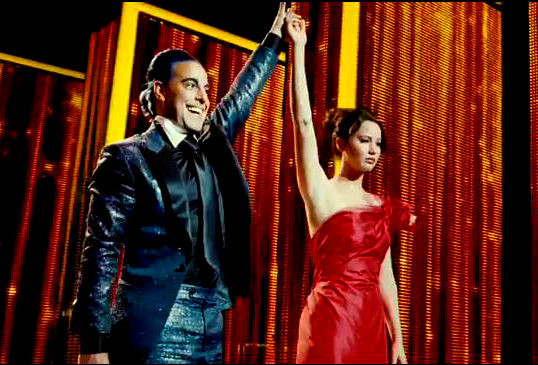 |
| Stanley Tucci as Caesar Flickerman and Jennifer Lawrence as Katniss Everdeen in The Hunger Games |
Quote of the Day: Actor Ashley Judd Takes on Bodysnarking Media
Written by Megan Kearns.
After media speculation over her allegedly “puffy face” caused a “viral media frenzy,” actor Ashley Judd decided to speak out against the media’s misogynistic accusations. Beyond her career as an actor, Judd is a humanitarian and philanthropist, a global ambassador for YouthAIDS and a Harvard graduate. The feminist activist — who dialogues about rape culture and proudly supports reproductive justice — confronted sexism, patriarchy and the media’s incessant scrutiny of women’s faces and bodies. In Judd’s must-read post for The Daily Beast, she writes:
“The Conversation about women’s bodies exists largely outside of us, while it is also directed at (and marketed to) us, and used to define and control us. The Conversation about women happens everywhere, publicly and privately. We are described and detailed, our faces and bodies analyzed and picked apart, our worth ascertained and ascribed based on the reduction of personhood to simple physical objectification. Our voices, our personhood, our potential, and our accomplishments are regularly minimized and muted.”
Love, love, LOVE this! I mean, who the hell cares if an actor has gained weight? Judd shouldn’t have to justify or defend her appearance. The media needs to cease the destructive commentaries and obsessive deconstruction of women’s bodies, debating whether or not a celeb has gained weight or had plastic surgery. And don’t even get me started on those god awful “baby bump patrols” in the tabloids. Bleh.
Controlling women’s bodies consumes our sexist and ageist society. Women obsess over their appearance because they see unhealthy and unrealistic depictions of female actors and models in film, TV, magazines and on billboards. Photoshopped faces and bodies saturate the media, creating unattainable images of beauty. We’re supposed to wax and tweeze body hair, slather on age-defying creams, diet and exercise curves into submission. Between diet books, exercise DVDs, weight loss shakes, low-fat foods – the dieting industry is a money-making juggernaut. And it’s geared towards women. On the flip side, the media chastises women for being too bony or thin. The media constantly dissects, critiques and polices women’s bodies.
In her Daily Beast article, Judd also succinctly defines patriarchy, reminding us that men aren’t the sole perpetrators of sexism. Women are too:
“That women are joining in the ongoing disassembling of my appearance is salient. Patriarchy is not men. Patriarchy is a system in which both women and men participate. It privileges, inter alia, the interests of boys and men over the bodily integrity, autonomy, and dignity of girls and women. It is subtle, insidious, and never more dangerous than when women passionately deny that they themselves are engaging in it.”
Judd couldn’t be more spot on. Patriarchy puts the needs of white men and boys first. Patriarchy silences and constrains women and girls yet makes them culprits in policing other women’s bodies and behavior. Women need to stop tearing down other women.
It’s interesting Judd’s patriarchy media manifesto comes out right after some asshole critics deemed Jennifer Lawrence’s body too fat, too curvy and not emaciated enough to play Hunger Games’ Katniss from the starving and impoverished District 12.
The New York Times’ Mahnola Dargis claimed “her seductive, womanly figure makes a bad fit for a dystopian fantasy about a people starved into submission,” The Hollywood Reporter’s Todd McCarthy commented on her “lingering baby fat,” Hollywood Elsewhere’s Jeffrey Wells accuses Lawrence of being “big-boned” and “seems too big for Hutcherson” as male romantic partners should at least be as tall as their female counterparts (I shit you not).
Thankfully, others like Melissa Silverstein at Women and Hollywood, Slate’s L.V. Anderson, LA Times’ Alexandra Le Tellier, LA Times’ Patrick Goldstein, as well as many others have called out this bullshit bodysnarking. Jennifer Lawrence, who chose not to diet for the role (good for her), has also apparently laughed off the media’s criticism of her body.
And of course there’s been an onslaught of racist commentary surrounding Rue. Her character’s innocence and purity and the audience’s ability to empathize with her apparently went out the window the minute racist filmgoers saw a Black girl.
Sophia Savage for Thompson on Hollywood points out that audiences called Kate Winslet “too fat” for the 3-D rerelease of Titanic. Winslet “responded that she’s now thinner than co-star Leonardo DiCaprio.” Winslet has spoken out about her weight and body image before, particularly her disdain for magazines’ overzealous photoshopping to make her look unrealistically thin. And I remember when Titanic originally premiered in 1997, audiences and film critics taunted Winslet’s weight. Clearly some things don’t change. Sigh.
But cruel commentary on women’s appearances isn’t just reserved for those in Hollywood. And not everyone can just shrug off the media’s mockery. Conservative pundits Glenn Beck and Laura Ingraham as well as others in the media have skewered columnist and blogger Meghan McCain for her weight and appearance. McCain said that it’s as if “all women in the media should lose a bunch of weight if they want to go on television to talk about anything.” She admitted she’s seen a therapist because of the media’s “really weird reaction” to her body. Omg I don’t blame her — I freak out when someone doesn’t like one of my blog posts! And of course I’ll never forget the horrific misogynistic dissection of both Hillary Clinton and Sarah Palin (their clothes, hair, bodies, faces, sexiness) during the 2008 presidential election.
We don’t see this level of relentless scrutiny and bodysnarking of male bodies. Women and girls are continually held up to unattainable toxic beauty standards, punished and criticized if they transgress these warped norms. A positive body image eludes many of us as a result. We can be anything we dream of, so long as we’re thin and sexy — and of course “sexy” means white women with long-flowing hair. Society continually places importance on womens’ and girls’ appearances over their merit and intellect, reducing us to sex objects. The media tells us our value and self-worth reside in our beauty.
Having met Ashley Judd on a few occasions, I can say she is every bit as impassioned in person as she appears in-print or on-screen. We need more celebs — like Judd, Geena Davis, Kerry Washington, Martha Plimpton, Margaret Cho, Jennifer Siebel Newsom, Roseanne Barr — who are outspoken staunch feminists, unafraid to call out sexist bullshit. We all need to challenge the media’s misogynistic attacks on women’s bodies.
Image by the U.S. federal government via the public domain in the U.S.
Bitch Flicks’ Weekly Picks
Amber‘s Picks:
White Until Proven Black: Imagining Race in Hunger Games by Anna Holmes for The New Yorker
Hollywood’s Female Trouble: Part 1, The Writers by Xaque Gruber for The Huffington Post
What’s Wrong with this Picture Illustrating Vanity Fair’s Women in Television Article? by Alyssa Rosenberg for ThinkProgress
5 Movie Characters that Changed the Way We View Women by Thelma Adams for AMC’s filmcritic.com
Social media: Is it too feminine? by Chelsea Sheasley for The Christian Science Monitor
5 Ways Modern Men Are Trained to Hate Women by David Wong for Cracked
Stephanie‘s Picks:
“Top 20 Fierce Women, Numbers 15-11” from Down With Film
“Future of Feminism: Girls and Women, Don’t Be Camera-Shy!” by Aviva Dove-Viebahn for Ms. Magazine
“Women on Film: How to Rebel” by Katherine Butler for Ecosalon
“Sexist TV: A Spotter’s Guide” by Clem Bastow for Daily Life
“Geena Davis: If Girls Can See It, They Can Be It” from the Microsoft Blog
Megan‘s Picks:
I See White People: Hunger Games and a Brief History of Cultural Whitewashing by Lindy West for Jezebel
’16 and Pregnant’ Brings Abortion to Primetime by Michelle Kinsey Bruns for Women’s Media Center
Racist Hunger Games Fans Illustrate All that’s Wrong with the World by Maya for Feministing
‘Two and a Half Men’ Co-Creator is Rebuked for Remarks About Women by Dave Itzkoff for NY Times
Hollywood’s Female Trouble: Part 2, The Directors by Xaque Gruber for The Huffington Post
Transgender Women in Puerto Rico Featured in New Documentary by Joseph Pedro for Passport Magazine
Two and a Half Men Creator Says Too Many Women on TV – Numbers Show Otherwise by Amy Tennery for The Jane Dough
Where Are the Women? National Magazine Award Edition by Maya for Feministing
What have you been reading this week?
Bitch Flicks’ Weekly Picks
Amber‘s Picks:
How Twitter Reflects the Themes of Our Society from The Nerdy Feminist
The Future of Feminism series from Fourth Wave
Vogue Italia’s “Haute Mess”: Racist, Ignorant, or Brilliant? from Racialicious
Spotlight: Anna and Modern-Day Slavery from Her Film
Sympathy for the Devil: On HBO’s Game Change, and Hating Ladies for the Right Reasons from Tiger Beatdown
Capitol Control: The Irony of The Hunger Games Movie Mania from Bitch
Stephanie‘s Picks:
“BYT @ SXSW Movies: Wonder Women“ by Jeff Spross for Brightest Young Things
“Tavi Gevinson on Creativity, Taste, and the Word ‘Girly'” from Huffington Post
“Hungering for a Female Hero: Hunger Games May Break New Ground” by Tom Long for Detroit News
“The Bitch List: Does Your Screenplay Have What It Takes?”
“On Feminism: Romantic Femininity” by Hila Shachar for Le Projet D’amour
Megan‘s Picks:
It’s Women’s History Month! Celebrate by Seeing The Hunger Games and Vote with Your Dollars This Weekend via I Will Not Diet
Will the Box Office Change the Gender Balance in Film? via Feminema
Mad Men: Set Me Free – a musical mash-up with the series’ female characters via Pop Culture Pirate
Steel Magnolias Remake Cast Announced: Queen Latifah, Phylicia Rashad to Star via Clutch Magazine
The Feminist Harry Potter Tumblr You’ve Been Waiting For via Bust Magazine
Leave your links in the comments!
